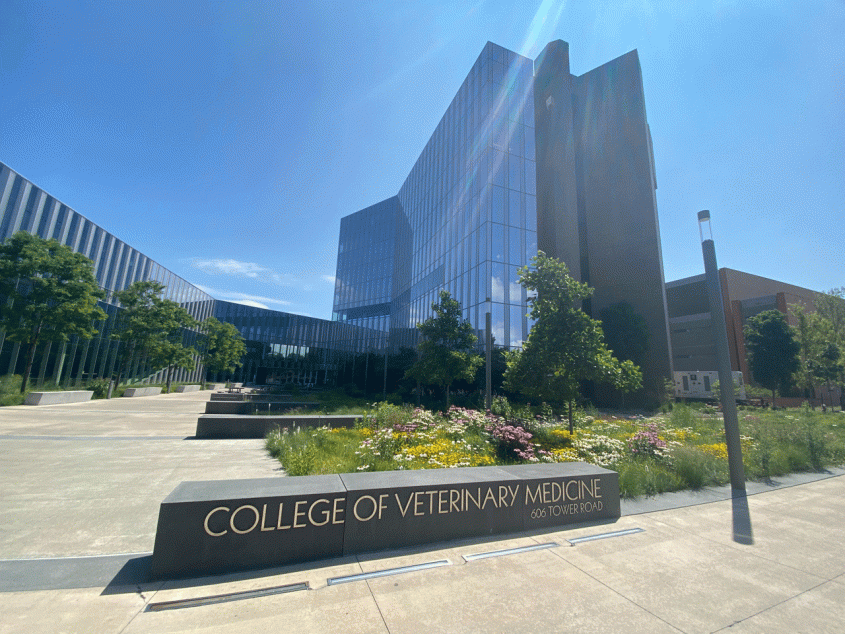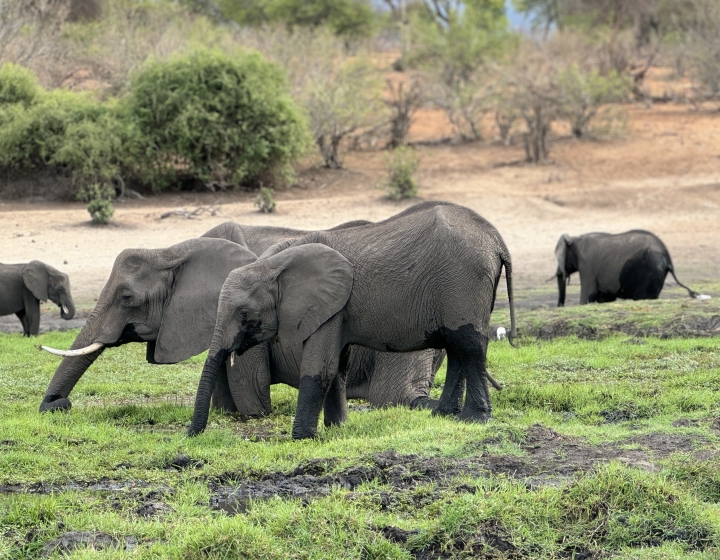Sandra Atlas Bass Endowment advances cancer research through seed grants
Three researchers at the College of Veterinary Medicine (CVM) recently received a boost for their work on cancer. Dr. Brian Rudd, professor in the Department of Microbiology and Immunology; Dr. Robert Weiss, professor of molecular genetics; and Dr. Andrew White, associate professor, both in the Department of Biomedical Sciences, are this year’s recipients of seed funding from the Comparative Cancer Biology Program.
Established in 2014, the grant program is funded by the Sandra Atlas Bass Endowment for Cancer Research at CVM. The awards support hypothesis-driven pilot research projects in cancer biology by faculty members at the college, whose collaborators may be researchers across and outside the university.
The project “Developmental layering: A new model of tumor immunity” by PI Rudd and his collaborator Dr. Anushka Dongre, assistant professor in the Department of Biomedical Sciences, tackles a mystery that has been on the forefront of the field of cancer immunology. Why do some CD8+ T cells — which kill cells that are infected, cancerous or otherwise damaged — respond to therapy and eliminate tumors while others do not and lose their function due to prolonged exposure to antigens, a state called “exhaustion”?
Rudd and his colleagues recently discovered that there are waves of functionally distinct CD8+ T cells that are made at different stages of life. Each wave or “layer” plays a unique role in immune defense against pathogens such as bacteria and viruses. However, it is not known how the developmental layers of CD8+ T cells respond to tumors. Rudd and Dongre will test the hypothesis that the propensity for CD8+ T cells to become exhausted in the tumor environment is pre-programmed and largely determined by when T cells were initially created in the host and examine how the cells respond to respond to checkpoint inhibitors, a type of immunotherapy drug.
“This raises the possibility that we might be able to predict how patients will respond to treatment based upon the starting composition of cells,” Rudd said.
In another grant-supported project, PI Weiss and Michelle Liu, Ph.D. student in the graduate field of Genetics, Genomics and Development, will work on “Determining the Role of the miR290-295 Cluster in Testicular Germ Cell Tumor Progression.”
Their research focuses on Type II testicular germ cell tumors (TGCTs), the most common malignancy in men aged 18 to 40 years — and the most curable, responding very well to chemotherapy. This type of cancer secretes unique RNA molecules, called microRNA, into the blood stream, making it easy to detect and monitor through a simple blood draw.
In this new study, the researchers hope to better understand the functional impact of the microRNAs. “Cancers tend not to waste energy on secreting things that don’t help them advance, and although these microRNAs regulate cancer-associated genes, this has not been explored in TGCTs at all,” Weiss said. Recent work by his lab developed a genetically engineered mouse model of TGCTs that produce the equivalent microRNA. Now he and Liu will use cells cultured from the model to genetically disrupt the microRNA and explore how this influences their growth and ability to develop cancer-like properties. As a second aim, they plan to develop a new mouse model in which the microRNA can be turned off in a regulated way.
White’s research, finally, will investigate the potential role of programmed cell death as an anti-tumor mechanism.
Internal seed grants such as these play an important role in helping investigators launch work in a new research area or advance a project for which they do not yet have outside funding, Weiss says. “We can generate data that then allows us to be successful competing for funding from the NIH or other external sources,” he explained. The Comparative Cancer Biology Program particularly encourages applications from junior faculty members, researchers new to cancer research as well as collaborations that bridge basic science and clinical applications.
Written by Olivia Hall






